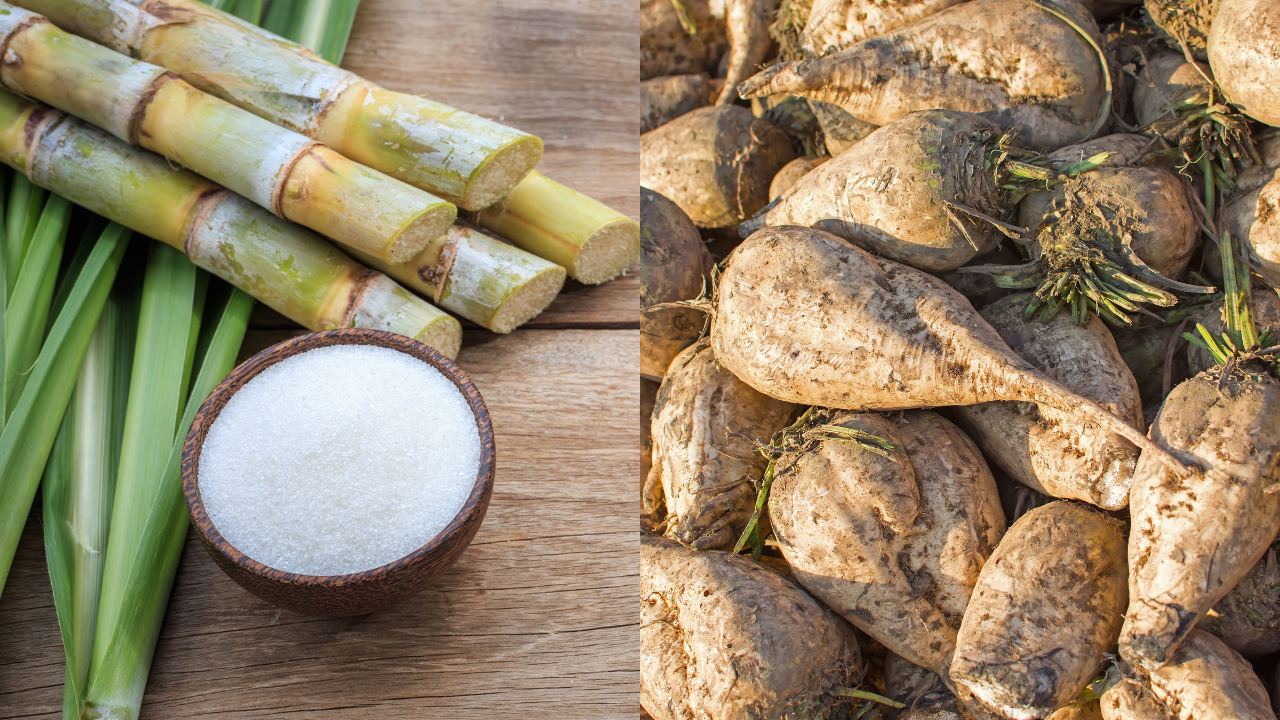The difference between beet sugar vs cane sugar extends beyond taste to how they are cultivated.
The difference between beet sugar vs cane sugar extends beyond taste to how they are cultivated.
Blog Article
Checking Out the Differences being used and Advantages Between Beet Sugar Vs Cane Sugar
In the culinary globe, the selection between beet sugar and cane sugar is not simply concerning sweet taste yet includes a nuanced factor to consider of flavor, application, and effect. While both sugars stem from various plants, each goes through special manufacturing processes that discreetly affect their attributes and viability for numerous recipes. As chefs and customers progressively prioritize both the environmental and taste profiles of their active ingredients, recognizing these differences comes to be vital. This exploration uses understanding into just how each sugar type can best improve culinary productions.
Beginnings and Manufacturing Processes of Beet and Cane Sugar

Cane sugar, on the other hand, comes from the sugarcane plant, a tropical lawn indigenous to Southeast Asia yet now cultivated in tropical areas worldwide - beet sugar vs cane sugar. The manufacturing of cane sugar begins with the harvesting of cane stalks, which are crushed to release the juice.

Nutritional Content and Health And Wellness Considerations

When comparing the nutritional content of beet sugar and cane sugar, it ends up being obvious that both types essentially offer the same calorie worths, with around 16 calories per teaspoon and no significant nutrient variety. Both sugars, when eaten in excess, can contribute to raised blood sugar degrees, a danger element for diabetic issues and other metabolic disorders. From a health viewpoint, regulating intake of any kind of sugar, whether from beet or cane, is suggested to stay clear of these prospective negative results on health.
Flavor Profiles and Culinary Applications
Despite their similar chemical frameworks, beet sugar and cane sugar differ discreetly in taste, which can affect their use in numerous culinary contexts. Walking stick sugar usually carries a tip of molasses, also in its polished kind, lending a warm, caramel-like touch that boosts baked items, coffee, and chocolate-based recipes. On the other hand, beet sugar is characterized by its extremely fine-tuned, neutral preference, making it a functional sugar that does not modify the taste accounts of meals.
Ecological Influence and Sustainability
While both beet and cane sugars are derived from plants, their environmental impacts differ substantially because of the distinctive approaches of farming and handling needed for every. Sugar beet cultivation typically includes substantial automation, which can boost Learn More Here fossil gas intake and carbon exhausts. Nevertheless, beetroots can be grown in cooler climates and require less irrigation, potentially decreasing water usage compared to sugarcane. Sugarcane, on the other hand, is usually grown in tropical areas where it depends heavily on irrigation and a much longer growing duration, boosting its water impact.
In addition, the handling of sugarcane typically produces a substantial quantity of waste, including bagasse, which, although useful as biofuel, often contributes to air contamination if shed inefficiently. Sugar beet handling makes use of even more of the raw materials, causing less waste. Both industries encounter difficulties in reducing their ecological footprints, however ongoing innovations in farming practices and waste monitoring are aiming to enhance sustainability.
Economic Factors Influencing the Sugar Sector
The financial dynamics of the sugar market are substantially affected by global market needs look at this web-site and profession plans. Factors such as tariffs, subsidies, and global profession arrangements play essential functions in forming the affordable landscape. For instance, in areas where sugarcane or sugar beet production is subsidized, manufacturers might have a monetary benefit that allows them to offer reduced costs on the international market. This can develop differences in success and market gain access to for producers in countries without such subsidies.
In addition, variations in international need for sugar, influenced by dietary trends and commercial usage in food, straight effect prices and production degrees. beet sugar vs cane sugar. Climate condition likewise play a critical role, as they can significantly affect plant yields and, as a result, the supply chain. This variability presents a degree of financial uncertainty that can click here now lead to financial investment volatility in sugar manufacturing industries, influencing choices from planting to market strategy
Verdict
In final thought, both beet and cane sugar have unique top qualities that suit various culinary requirements. While cane sugar imparts an abundant flavor suitable for enhancing baked products, beet sugar's nonpartisanship is ideal for lighter recipes.
Report this page